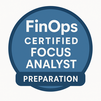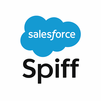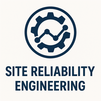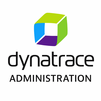
Dive into the advanced practices of DevOps with our Google Cloud DevOps Engineer Professional course. This comprehensive training covers essential tools and technologies such as Google Kubernetes Engine, Cloud Build, and Cloud Operations suite. Gain in-depth knowledge on automating infrastructure, optimizing deployments, and ensuring high availability. Perfect for professionals aiming to certify their expertise, this course combines theory with practical applications, setting the stage for success in complex cloud environments.
Google Cloud DevOps Engineer Professional Interview Questions Answers - For Intermediate
1. How do pre-emptible VMs impact DevOps processes?
Preemptible VMs are cost-effective, short-lived compute instances suitable for fault-tolerant workloads. In DevOps, they can be used for various tasks such as CI/CD workloads, batch jobs, and other processing tasks that don’t need to be constantly running, thus reducing costs.
2. Explain the importance of network policies in GKE from a DevOps perspective.
Network policies in GKE enable you to control the traffic flow at the IP address or port level, which is crucial for securing microservices. For DevOps, implementing network policies ensures that applications are segmented and only the necessary communication is allowed, enhancing security.
3. How does Cloud IAM enhance security for DevOps teams?
Cloud IAM provides fine-grained access control and visibility into who has access to your resources. It ensures that only authorized users and services can access critical components, which is essential for maintaining the security and integrity of DevOps pipelines.
4. What is a GKE Autopilot and how does it fit into DevOps?
GKE Autopilot is a managed Kubernetes service that automates the provisioning, scaling, and management of containers. It reduces the operational burden on DevOps teams by managing much of the cluster maintenance automatically, allowing them to focus on deploying and improving applications.
5. Discuss how Cloud DNS can be utilized in a DevOps environment.
Cloud DNS is a scalable and highly available DNS web service. In DevOps, it is used to manage domain names and their corresponding IP addresses, facilitating efficient routing and connectivity for applications and services.
6. What are managed instance groups in Google Cloud, and why are they important for DevOps?
Managed instance groups offer auto-scaling and load balancing to manage the deployment and scaling of a large number of instances automatically. They are important for DevOps because they ensure that the application maintains performance and availability without manual intervention.
7. Explain how VPC Service Controls enhance security in a DevOps setup.
VPC Service Controls allow you to define a security perimeter around Google Cloud resources like API data access and GCP services. This prevents data exfiltration and helps in securing CI/CD workflows in a DevOps environment.
8. What is the role of API Gateway in Google Cloud for DevOps?
API Gateway in Google Cloud allows you to develop, secure, and monitor APIs at scale. In a DevOps context, it facilitates the management of APIs that are used by various microservices, ensuring efficient communication and service integration.
9. How can Cloud Endpoints be leveraged in a DevOps cycle?
Cloud Endpoints is a service that helps you create, monitor, and manage APIs accessed by client applications. In DevOps, it helps in efficiently deploying and managing APIs, providing insights into the usage and performance of the APIs which is crucial for continuous improvement.
10. What are the benefits of using Memorystore in a DevOps environment?
Memorystore provides fully managed in-memory data stores, compatible with Redis and Memcached. It helps DevOps teams enhance application performance by caching frequently accessed data, reducing latency, and improving scalability.
11. Discuss the integration of Google Cloud Armor in DevOps practices.
Google Cloud Armor safeguards applications against multiple types of threats, including DDoS attacks. In a DevOps environment, integrating Cloud Armor helps protect the CI/CD pipeline and deployed applications from external threats.
12. How do custom roles in Cloud IAM assist DevOps operations?
Custom roles in Cloud IAM allow you to create precise access controls tailored to your organization's needs. This flexibility is crucial for DevOps teams to ensure that personnel have appropriate access rights to resources for their roles, enhancing security and operational efficiency.
13. Explain the significance of logging and monitoring in a DevOps approach, particularly in Google Cloud.
Logging and monitoring are critical for identifying and addressing issues in real time, ensuring high availability and performance. Google Cloud provides powerful tools like Cloud Logging and Cloud Monitoring to help DevOps teams track and analyze the behavior of their applications and infrastructure.
14. What considerations should be made when setting up a disaster recovery plan in a DevOps environment?
In a DevOps environment, the disaster recovery plan should focus on automation for backup and restore processes, regular testing of recovery procedures, and ensuring that all critical components are redundantly configured across multiple regions or zones to ensure high availability and failover capabilities.
15. How does Cloud SQL support DevOps practices?
Cloud SQL is a fully managed database service that provides scalable and reliable database operations. In a DevOps context, it supports rapid iteration and automation of database provisioning and management, which aligns with the principles of continuous integration and delivery.
Google Cloud DevOps Engineer Professional Interview Questions Answers - For Advanced
1. Discuss the benefits and considerations of using preemptible VMs in DevOps workflows on Google Cloud.
Preemptible VMs are short-lived compute instances that last up to 24 hours and are offered at a lower price than standard VMs. They are ideal for stateless, fault-tolerant tasks such as batch jobs, continuous integration loads, or large-scale computations that do not require persistent storage. In DevOps, using preemptible VMs can significantly reduce the cost of compute-intensive tasks. However, it is crucial to design systems to handle interruptions, as preemptible VMs can be terminated if Google Cloud requires access to those resources. Implementing checkpointing, using job orchestration tools like Google Cloud Composer, and designing applications to resume tasks after interruption are essential strategies to leverage preemptible VMs effectively.
2. Explain the role of Google Cloud’s Service Mesh in managing microservices communications in a DevOps context.
Google Cloud’s Service Mesh is a managed service mesh that enhances how microservices communicate with each other, offering observability, management, and security without requiring changes to the microservices code. In a DevOps environment, Service Mesh provides detailed telemetry data that helps in monitoring and troubleshooting inter-service communications. It also automatically manages the complex security policies and network configurations that are essential for secure and efficient microservices operations. By implementing Service Mesh, DevOps teams can focus on developing business logic rather than managing network-level issues, thereby speeding up development cycles and reducing operational overhead.
3. How can real-time data processing be optimized in DevOps practices using Google Cloud’s Stream Analytics tools?
Google Cloud offers several tools for stream analytics, including Dataflow and Pub/Sub, which can process real-time data efficiently. In DevOps, these tools enable real-time monitoring and logging of various operations, providing immediate feedback and alerting on issues. For example, Dataflow can process logs from applications and infrastructure to detect anomalies or patterns that indicate potential issues, enabling rapid response. Additionally, integrating stream analytics into the CI/CD pipeline allows for real-time performance data to be used in deployment decisions, such as scaling out services during high traffic or rolling back deployments that show unexpected behavior, optimizing both the development cycle and the user experience.
4. Detail how Google Cloud Endpoints can be used to manage APIs in a microservices architecture within DevOps practices.
Google Cloud Endpoints is a distributed API management system that helps developers create, deploy, secure, and monitor APIs. In a DevOps environment focusing on microservices, Endpoints facilitate managing API gateways that provide critical functions such as authentication, rate limiting, and analytics. This management is crucial for ensuring that microservices remain loosely coupled but functionally cohesive. Endpoints’ integration with Google Cloud’s IAM also ensures that API access is securely controlled, and its native integration with Google Cloud’s logging and monitoring services provides valuable insights into API performance and usage patterns. These features help maintain robust, scalable, and secure API infrastructures, which are pivotal for successful microservices architectures.
5. What are the best practices for implementing monitoring and alerting in Google Cloud DevOps environments?
Effective monitoring and alerting are critical components of DevOps practices, ensuring that applications perform optimally and issues are resolved swiftly. Best practices in Google Cloud include using Cloud Monitoring to track application and infrastructure performance by collecting metrics, logs, and events. Setting up custom dashboards for real-time visibility and creating alert policies based on specific metrics or events can help in quickly identifying anomalies. Integrating Cloud Monitoring with incident management tools like PagerDuty or Slack can automate the alerting process, ensuring that the right team members are notified immediately when issues arise. Additionally, logging application and system events in Cloud Logging allows for deeper analysis and troubleshooting, providing a comprehensive view of the DevOps environment.
6. How does Google Cloud support the management of configuration drift in DevOps environments?
Configuration drift occurs when the actual state of an environment diverges from the intended state defined by configuration files or scripts. Google Cloud addresses this issue by offering tools such as Cloud Deployment Manager and Terraform, which can be used to automate infrastructure provisioning and manage configurations declaratively. These tools ensure that all changes are version-controlled and reproducible, reducing the likelihood of drift. Additionally, periodic scanning of environments using custom scripts or tools like Forseti Security can detect and alert on deviations, allowing teams to correct drift and maintain consistency across development, staging, and production environments.
7. Discuss the challenges and solutions for managing secrets in Google Cloud DevOps workflows.
Managing secrets, such as passwords, tokens, and API keys, is a critical challenge in DevOps workflows, requiring both security and accessibility. Google Cloud offers Secret Manager, a secure and convenient way to store and access secrets across Google Cloud services. Secrets are encrypted in transit and at rest, and access is controlled via fine-grained IAM policies. Integrating Secret Manager with CI/CD pipelines and application deployments ensures that secrets are injected at runtime, reducing the risk of exposure. Additionally, auditing access to secrets and rotating them regularly enhances security by limiting the time a compromised secret can be used.
8. How can Google Cloud’s BigQuery be integrated into DevOps practices for enhancing data-driven decision-making?
BigQuery is a fully managed, serverless data warehouse that enables super-fast SQL queries using the processing power of Google's infrastructure. In a DevOps context, integrating BigQuery with development processes can enhance decision-making by providing insights from historical data. For example, analyzing past deployment patterns and their outcomes can help in refining CI/CD strategies, optimizing resource allocation based on usage patterns, and understanding the impact of different development practices on product quality. BigQuery can also be used to analyze application logs and metrics at scale, providing actionable insights that drive continuous improvement in operations and development.
9. Explain the use of Google Cloud’s Data Catalog for managing data assets in a DevOps environment.
Google Cloud’s Data Catalog is a fully managed and scalable metadata management service that helps organizations quickly discover, manage, and understand their data in Google Cloud. In a DevOps environment, a Data Catalog can be used to create a unified view of data assets, facilitating better governance and utilization of data across teams. It supports the automated discovery of datasets, integrates with BigQuery, and offers rich search functionality, making it easier for DevOps teams to find relevant datasets for development and testing. Additionally, its fine-grained access control ensures that sensitive data is protected and only accessible to authorized users, which is crucial for maintaining data security in fast-paced DevOps workflows.
10. What are the considerations for implementing hybrid and multi-cloud strategies with Google Cloud in a DevOps workflow?
Implementing hybrid and multi-cloud strategies involves several considerations to ensure seamless operation across different environments. These include network connectivity, data governance, application portability, and consistent security policies. Google Cloud’s Anthos and other hybrid connectivity options like VPN and Interconnect provide secure and reliable connections between Google Cloud and other environments, such as on-premises data centers or other clouds. For data governance, ensuring that data is managed and controlled according to compliance requirements across clouds is critical. Application portability can be achieved by using containers and Kubernetes, supported by GKE and Anthos, allowing applications to be deployed consistently regardless of the underlying infrastructure. Finally, maintaining uniform security policies across environments is crucial, and Google Cloud provides tools like Security Command Center and Cloud Armor that can be integrated across clouds to manage security centrally.
11. Discuss the integration of DevOps with data science workflows in Google Cloud.
Integrating DevOps with data science workflows involves automating the data science lifecycle from data preparation and model training to deployment and monitoring. Google Cloud offers various tools that facilitate this integration. BigQuery can handle large-scale data processing tasks efficiently, serving as a robust data source for training machine learning models. AI Platform provides end-to-end tools to help data scientists and machine learning engineers run their experiments, deploy models in production, and manage them efficiently. The integration of CI/CD tools like Cloud Build with AI Platform enables automating model training and deployment, allowing models to be updated dynamically with new data. Furthermore, continuous monitoring of model performance can be achieved using Cloud Monitoring, ensuring that the deployed models perform as expected under changing real-world conditions.
12. How can the principles of Site Reliability Engineering (SRE) be applied in a Google Cloud DevOps context?
Site Reliability Engineering (SRE) is a discipline that incorporates aspects of software engineering and applies them to infrastructure and operations problems. The main goal is to create scalable and highly reliable software systems. In a Google Cloud DevOps context, SRE principles can be applied by adopting practices such as error budgets service level indicators (SLIs), and service level objectives (SLOs). Google Cloud’s operations suite can be used to measure SLIs and track SLOs to ensure that services meet their reliability targets. Automation is another key principle of SRE that can be implemented using Google Cloud’s various automation tools like Cloud Build, Deployment Manager, and Kubernetes for automating deployments, scaling, and management of applications. Additionally, practicing blameless postmortems to learn from failures and continuously improve the system's reliability is an important aspect of SRE that can enhance DevOps practices.
13. What role does API management play in DevOps, and how does Google Cloud facilitate it?
API management in DevOps is crucial for defining, publishing, securing, and monitoring APIs that are used by both internal developers and external consumers. Google Cloud facilitates API management through Apigee, a platform for developing and managing API proxies that decouple the frontend from backend services, which is essential for developing microservices architectures. Apigee provides features such as traffic management, security policies, and analytics, which are important for maintaining high availability, performance, and security of APIs. Integrating Apigee into the DevOps process helps ensure that APIs are consistently managed and deployed alongside other application components, aligning with the overall CI/CD pipeline.
14. Explain the importance of artifact management in DevOps and how Google Cloud supports it.
Artifact management is critical in DevOps for ensuring that all software binaries and libraries are organized, stored, and retrievable for deployment across different environments. Google Cloud supports artifact management through Artifact Registry, which can store container images, language packages, and other build artifacts. It provides a single place for storing, managing, and securing artifacts, simplifying dependency management and streamlining the build and release process. Integration with CI/CD tools like Cloud Build allows for automatically pushing and pulling images, ensuring that only approved and tested artifacts are deployed. Additionally, the ability to replicate artifacts across multiple regions supports the global distribution of applications, enhancing performance and availability.
15. Discuss the challenges of scaling DevOps practices in large organizations and how Google Cloud can help address them.
Scaling DevOps practices in large organizations involves addressing challenges such as maintaining consistency across multiple teams and projects, managing complex deployments, and ensuring security at scale. Google Cloud provides various tools and services that help address these challenges. Cloud Build and Kubernetes offer scalable solutions for continuous integration and deployment across multiple environments and services. Google Cloud’s IAM and Resource Manager help manage access and organize resources across teams, ensuring that policies and practices are consistently applied. For complex deployments, Google Cloud Deployment Manager and Terraform support infrastructure as code, which is crucial for managing large-scale cloud resources efficiently and repeatably. Moreover, Google Cloud’s comprehensive security tools, including Security Command Center and VPC Service Controls, provide the necessary controls to secure resources and data, which is particularly important in large-scale operations where security risks are amplified.
Course Schedule
| Dec, 2025 | Weekdays | Mon-Fri | Enquire Now |
| Weekend | Sat-Sun | Enquire Now | |
| Jan, 2026 | Weekdays | Mon-Fri | Enquire Now |
| Weekend | Sat-Sun | Enquire Now |
Related Courses
Related Articles
Related Interview
- AutoCAD P&ID Essential Training Interview Questions Answers
- SAP Integrated Business Planning (IBP) - Interview Question Answers
- Hands-On Python & R In Data Science Interview Questions Answers
- Microsoft Certified Azure AI Engineer Associate AI-102 Training Interview Questions Answers
- Vector CANoe Interview Questions Answers
Related FAQ's
- Instructor-led Live Online Interactive Training
- Project Based Customized Learning
- Fast Track Training Program
- Self-paced learning
- In one-on-one training, you have the flexibility to choose the days, timings, and duration according to your preferences.
- We create a personalized training calendar based on your chosen schedule.
- Complete Live Online Interactive Training of the Course
- After Training Recorded Videos
- Session-wise Learning Material and notes for lifetime
- Practical & Assignments exercises
- Global Course Completion Certificate
- 24x7 after Training Support












 Join our Live Instructor-Led online classes delivered by industry experts
Join our Live Instructor-Led online classes delivered by industry experts